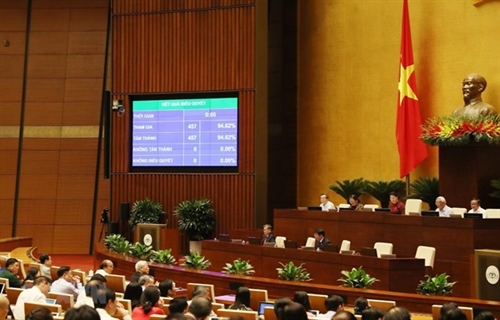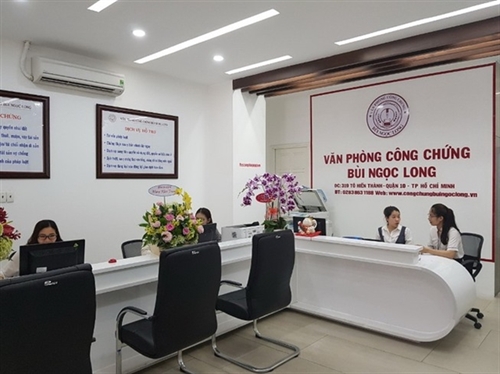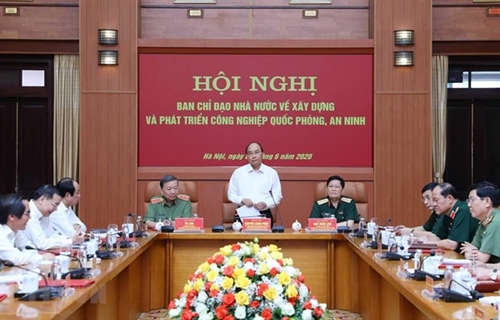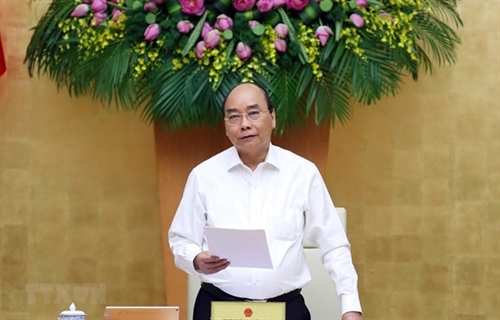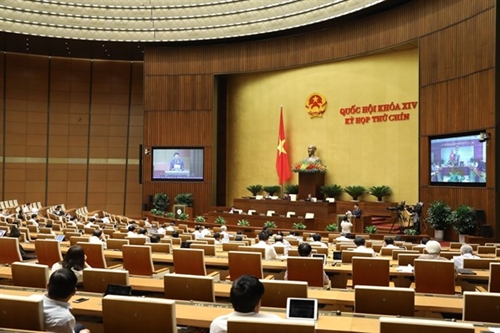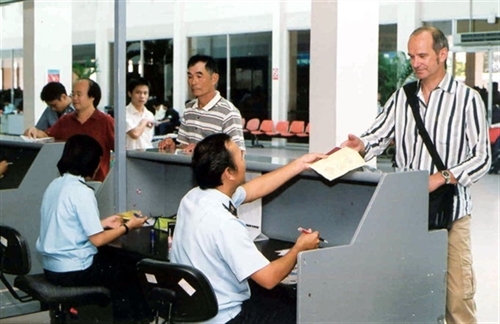Clear and detailed regulations are needed to strictly punish those who abuse labor export policies to make illegal profits, National Assembly deputies said on June 10 when discussing in groups the draft revised law on Vietnamese guest workers.
They agreed that the revised law must make progress in administrative reform, creating transparency and convenience for labor export companies as well as being an effective tool to punish violators, especially those who sent people overseas for work and irresponsibly left them without any care or support.
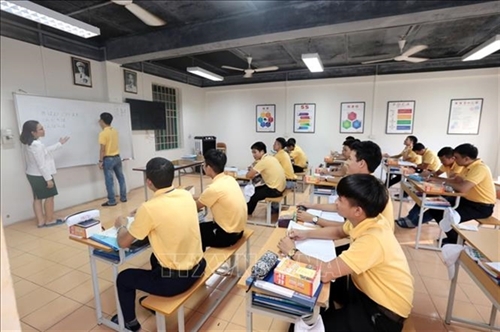 |
| Candidates learn Japanese before arriving in Japan for work__Photo: VNA |
Deputy Ngo Duy Hieu from Hanoi said that the revised law needs to include costs workers pay to get a job overseas. In some cases, workers reportedly had to pay a lot to brokers without being aware that the payment was not regulated and even illegal.
“Without clear regulations, many people face financial difficulties when they want to work overseas,” Hieu said.
Hieu also said that labor export policies should be in line with human resource development within the country, as Vietnam was facing an aging population and still had huge demand for quality human resources for its socio-economic development.
Under the draft revised law, a labor export license can be valid for five years and be extended every five years; the number of extensions is unlimited. Hieu said it was not necessary to extend the license.
“The companies will be granted licenses if they meet requirements and will have the licenses withdrawn if they fail to meet requirements,” he said, questioning the benefits of the license extension to companies and workers.
Deputy Thich Bao Nghiem from Hanoi said that licensed companies and organizations did a good job when sending Vietnamese workers to other countries for work, but in other cases, Vietnamese illegally lived and worked in other countries.
The deputy recalled the tragedy over the death of 39 Vietnamese people in a refrigerated truck container in Essex, southeast England. He said that in those cases, Vietnamese workers were lured by brokers, which resulted in threats to their safety.
“The illegal guest workers live in other countries without being protected by law,” he said, calling for regulations that help to minimize such incidents.
NA Chairwoman Nguyen Thi Kim Ngan said that companies found to have collected illegal fees from workers must be strictly punished.
She also said that the Government needed to arrange commercial counselors in countries where many Vietnamese guest workers were working so they could offer assistance and solve problems.
The draft revised law consists of eight chapters with 79 articles, one article less than the current law. The draft abolishes eight articles, adds nine new ones, and revises about 70 articles of the existing law.
The revision aims to institutionalize the 2013 Constitution and the Party’s recent guidelines on the sending of Vietnamese workers abroad as well as address new problems that the current law dated 13 years ago fails to deal with.
Last year, the country sent 152,530 laborers abroad, surpassing the year’s plan by 27.1 per cent. Japan was the biggest recipient with nearly 83,000 laborers, followed by Taiwan (China) with 54,480, the Republic of Korea (RoK) with 7,215, Romania with 3,478, and Saudi Arabia with 1,375.
By the end of March, about 560,000 Vietnamese people were working in 36 countries and territories worldwide..- (VNS/VLLF)

